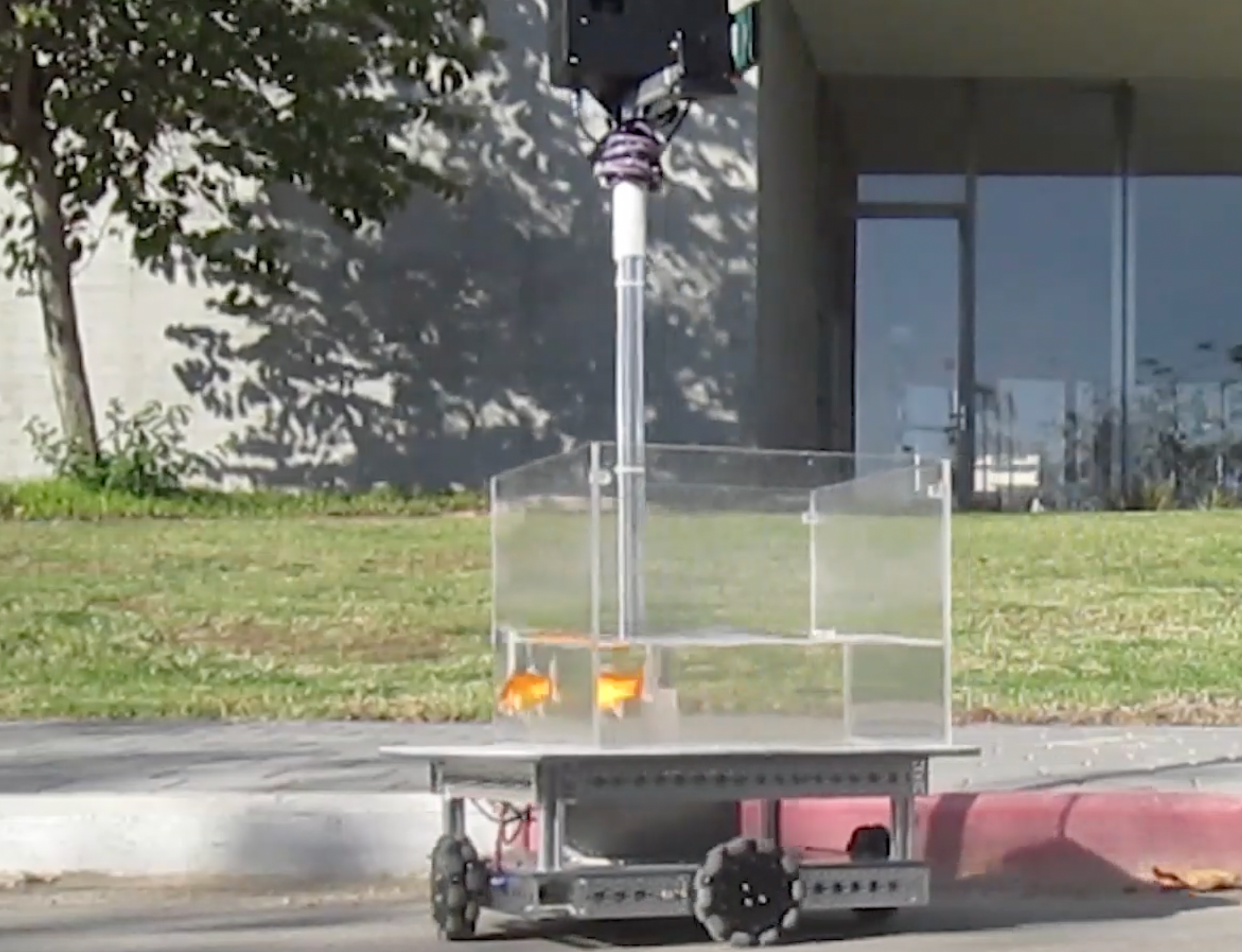Scientists teach goldfish to drive robotic car and show they can successfully navigate on land
Navigational ability in animals could be universal rather than specific to the environment, study suggests

Your support helps us to tell the story
From reproductive rights to climate change to Big Tech, The Independent is on the ground when the story is developing. Whether it's investigating the financials of Elon Musk's pro-Trump PAC or producing our latest documentary, 'The A Word', which shines a light on the American women fighting for reproductive rights, we know how important it is to parse out the facts from the messaging.
At such a critical moment in US history, we need reporters on the ground. Your donation allows us to keep sending journalists to speak to both sides of the story.
The Independent is trusted by Americans across the entire political spectrum. And unlike many other quality news outlets, we choose not to lock Americans out of our reporting and analysis with paywalls. We believe quality journalism should be available to everyone, paid for by those who can afford it.
Your support makes all the difference.Scientists have taught a goldfish to drive a robotic car in an experiment to assess its innate navigational abilities and further explore animal behaviour.
The robotic driving setup built by scientists from Ben-Gurion University in Israel consists of a set of wheels under a goldfish tank with a camera system to record and translate the fish’s movements into forward, back and side-to-side directions to the wheels.
In the study, published last month in the journal Behavioural Brain Research, they tested whether the fish could navigate by placing a clearly visible target on the wall opposite the tank.
Since navigation plays an important role in the animal kingdom, the scientists wanted to explore if there are universal properties independent of species, ecology and brain structures.
They sought to understand if a species embedded in the environment of another one could cope with an otherwise familiar navigation task.
“For this purpose, we trained goldfish to use a fish operated vehicle (FOV), a wheeled terrestrial platform that reacts to the fish’s movement characteristics, location and orientation in its water tank to change the vehicle’s position in the arena,” they wrote in the study.
After a few days of training they found that the fish could successfully drive the vehicle towards the target, hinting that its navigational ability supersedes its aqueous environment.
The scientists reported that the trained goldfish could “operate the vehicle, explore the new environment, and reach the target regardless of the starting point, all while avoiding dead-ends and correcting location inaccuracies”.
“The study hints that navigational ability is universal rather than specific to the environment,” Shachar Givon, a PhD student in the Life Sciences Department in the Faculty of Natural Sciences, said in a statement.
“Second, it shows that goldfish have the cognitive ability to learn a complex task in an environment completely unlike the one they evolved in,” Ms Givon added.
Join our commenting forum
Join thought-provoking conversations, follow other Independent readers and see their replies
Comments